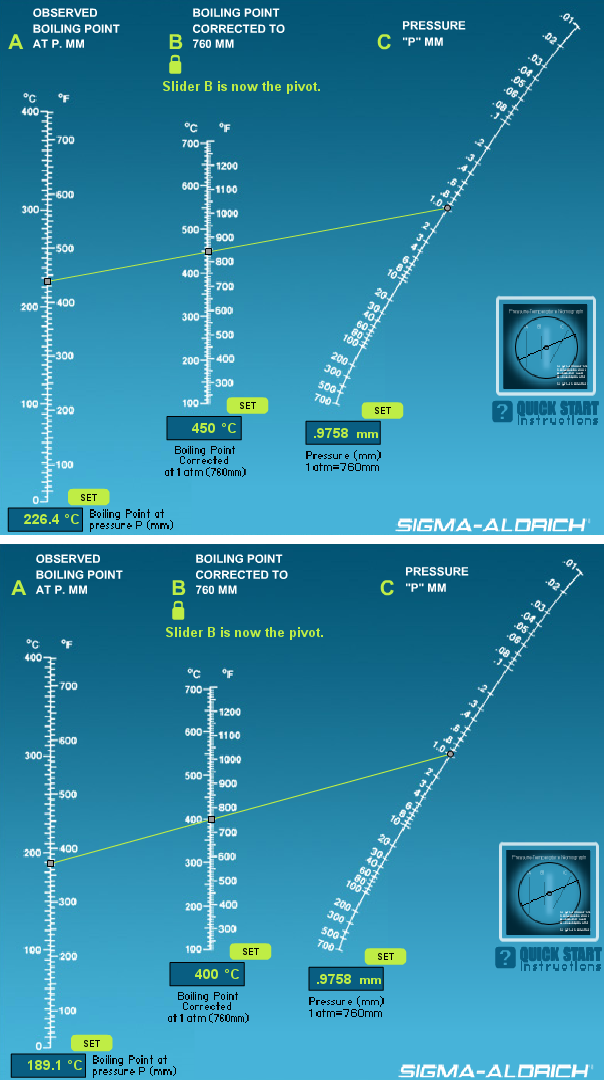In our teaching lab, we were posed with the following question as an exersize:
If the boiling points of two compounds differ by 50 degrees C at atmospheric pressure, what will be the effect on the relationship by decreasing the pressure to 1mm (no number, just a general process)?
I did not find much information on the subject in our lab manual or book but, but based off of some reading I've done around the internet (see below), it seems that for most binary solutions, decreasing the pressure increases the relative volatility. However, asking some of my peers, they seems to believe that while both boiling points would decrease, the difference in their new boiling points would remain about the same (i.e. ~50 degrees C), To make matters slightly more confusing, using a pressure-temperature nomograph, picking arbitrary numbers, I found that the relative volatility decreased (see Figure 1).
Who is more correct? Does decreasing the system pressure increase the relative volatility or does it stay the same?
If the relative volatility increases when system pressure is decreased, why is this the case? I would actually guess the opposite, because as you decrease the pressure towards 0 (a vacuum), it would seem that all boiling points would approach 0 K, thus be getting closer together.
If the relative volatility increases when system pressure is decreased, does that mean it is always more efficient to perform fractional distillation under a partial vacuum?

Figure 1 Two nomographs measured from http://www.sigmaaldrich.com/chemistry/solvents/learning-center/nomo-assets.html decreasing the system pressure to 1mm for two arbitrary substances with 50 degree C boiling point disparity at 1atm.
References:
- https://chemengineering.wikispaces.com/Relative+volatility (under "Effect of temperature or pressure on relative volatility")
- http://en.wikipedia.org/wiki/Vacuum_distillation#Industrial-scale_applications
